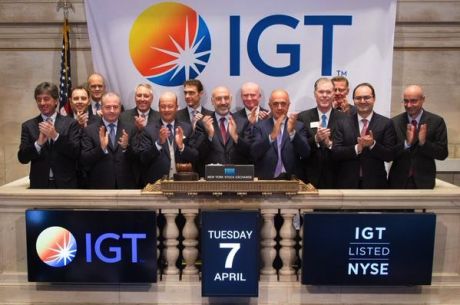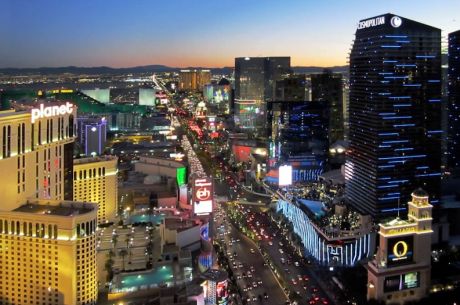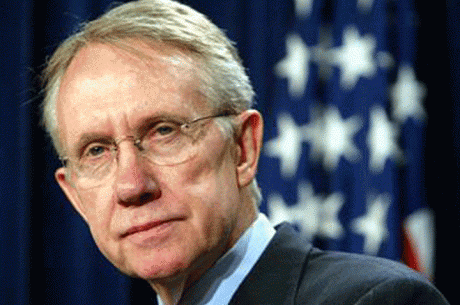Inside Gaming: Revel Finds Buyer, But Loses Power; Arizona Opposes New Casino

This week’s Inside Gaming reports on a deal finally being reached for the purchase of the closed Revel Atlantic City, although not without further trouble between the new purchaser and the facility’s former energy supplier. Also covered is another casino-related battle in Arizona where the state is opposing the future opening of a casino already under construction.
Revel Finally Finds a Buyer, Then the Lights Go Out
This month Glenn Straub was at long last successful in his bid to purchase the closed Revel Atlantic City. The sale to Straub’s Polo North Country Club, Inc. was finalized a week-and-a-half ago, with the Florida developer immediately announcing plans to purchase the also-closed Showboat next door and embark on numerous possible projects in Atlantic City over the next several years, including potentially transforming the Revel into a smaller casino with a water park, hotel, condos, spa, and an equestrian facility.
Much has to be done before any of those plans will ever be realized, of course. First and foremost, Straub will need to find a way to turn the lights back on.
ACR Energy Partners, former supplier to the Revel, shut off power to the facility on April 9 after Straub informed them he had plans to provide electricity to his newly-purchased property by other means. The costs of providing power to the 47-story tower had been high for the Revel’s former owners — in the neighborhood of $36 million a year — with ACR having continued to supply power during the time of its closure to keep heating and fire prevention systems operational despite increasingly mounting unpaid bills and interest.
Costing $2.4 billion to construct, the Revel closed its doors in early September 2014 just two-and-a-half years after having first opened. Its brief, troubled tenure included two bankruptcy filings (in February 2013 and June 2014), then a failure to find a buyer at a bankruptcy auction in August 2014.
After the Revel closed, another auction concluded with Toronto-based Brookfield U.S. Holdings LLC winning with a $110 million bid, although after being unable to settle the power issue with ACR, Brookfield walked away from the deal. Straub had been the next-highest bidder, and one attempt at closing a deal with him for $95.2 million failed in February, with ACR’s involvement again being a fly in the ointment.
Another try to sell to Straub finally succeeded, however, with a new deal for $82 million being approved by a bankruptcy court judge on April 2 and at last completed April 7.
As NJ.com reported last week, just two days after the deal was finalized ACR shut off power in response to Straub’s unwillingness to provide the company assurance that past bills would be paid.
“We’ve been negotiating with him since January and the short and simple is he wants free power and we don’t have the ability to provide him free power,” said Timothy Lowry, attorney for ACR. Meanwhile Straub’s efforts to purchase the Showboat from its current owner, Stockton University, also involves a backup plan to power the Revel via Stockton’s supplier.
Philly.com yesterday provided a further update on the situation, including a lengthy explanation by ACR of its position vis-à-vis the Revel and Straub that puts forth the company’s position that “it was not responsible for failed negotiations with past potential buyers (as those buyers have said).”
ACR “says it offered Straub's Polo North company ‘electricity and energy at ACR’s cost to produce the energy during a 14-month transition period to assist in commencing operations,’” followed by a "long-term energy contract that reflected low interest rates and low equity returns on deeply discounted debt and equity capital levels at ACR.’” However Straub objected that ACR desired a 30-year deal, “and he's got other long term ideas that involve tapping into the electric grid with transformers of his own.”
All remains dark at the Revel at present, with immediate prospects for a change in the situation dim as well.
Go to Philly.com who sheds some light on the current situation.
State Intends to Block Arizona Tribe’s Casino from Opening
The Tohono O’odham Nation began construction of a new $400 million tribal casino north of Glendale, Arizona last year with the groundbreaking ceremony in August 2014 and the current schedule calling for the opening of the first phase in December of this year. But even as 1,300 workers proceed with the construction, the state is warning the tribe they will not be allowed to open the casino despite their already having emerged from a lengthy legal battle to begin construction.
Last week Daniel Bergin, director of the Arizona Department of Gaming, sent the Tohono O’odham Nation a letter explaining that the casino would not be allowed to open because of “fraud perpetrated by (the tribe) upon the state, Arizona gaming tribes and the state’s voters,” The Arizona Republic reports. Bergin continued by explaining in his view his department “would exceed its authority if it were to proceed with any certification or approval processes relating to the opening or operation of (the tribe’s) Glendale casino.”
The notice comes after Arizona governor Doug Ducey had asked Bergin not to give approval to the new casino. Ducey sent a letter to Bergin on April 8 charging the Tohono O’odham Nation with trying “to force a casino on the people of Arizona, rather than let the legal process play out.” Ducey characterizes the construction of the casino as itself a gamble — “a calculated risk by Tohono O’odham” — given the lack of assurance approval for opening will be secured.
The legal process to which Ducey refers points back to a 2013 ruling by Federal District Court Judge David Campbell that the tribe’s plan to build a new casino was in compliance with the state’s 2002 gaming compact approved by the state’s voters. Campbell stated the compact “does not contain a ban on new casinos in the Phoenix area, and its terms cannot reasonably be read to include such a ban,” as reported by The Glendale Star. Both the state and another tribe, the Gila River Indian Community, subsequently appealed that ruling to the 9th Circuit U.S. Court of Appeals.
As The Arizona Central explains, the state’s position is that when negotiating that 2002 compact the tribe “committed fraud by not being upfront about its plans to build the West Valley casino when negotiating its gaming compact.” However back in February the state’s assistant attorney general Roger Banan suggested in a letter to the Tohono O’odham Nation’s attorney the Department of Gaming “would follow federal law regarding the casino and ‘proceed in the normal course of business’ to consider certifying the casino.”
The tribe maintains both that the 2013 ruling confirms it did not commit fraud in its earlier negotiations, and complains that now the state and gaming agency has unfairly changed course. Seth Waxman, an attorney for the tribe, wrote Bergin this week to complain that the Department of Gaming, an ostensibly “independent regulatory body,” now “appears to have changed its position based on improper political pressure, not reasoned decision making.”
Building continues, but the fate of the new casino remains uncertain.
Visit The Arizona Republic as they construct a helpful narrative regarding the complicated history of the Tohono O’odham Nation’s efforts to build the Glendale casino.
Photo: “The Revel,” Grant Guarino. Creative Commons Attribution ShareAlike 2.0 Generic.
Want to stay atop all the latest in the poker world? If so, make sure to get PokerNews updates on your social media outlets. Follow us on Twitter and find us on both Facebook and Google+!








